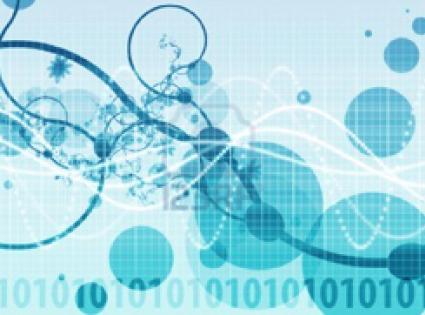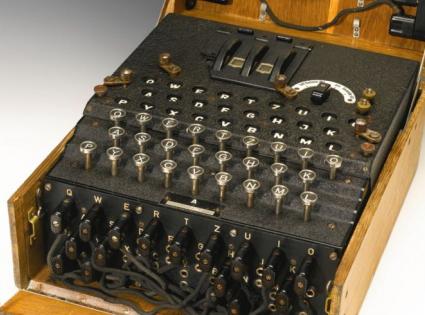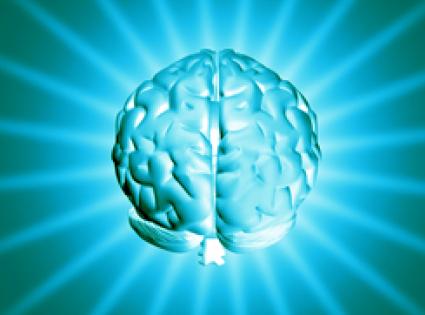Seminar on Argumentation
Course Objectives
From its beginning, Argumentation Theory has questioned formal logic’s ability to explain what is a good argument and what is good argumentation. Considering the limits of formal systems, scholars have considered whether a theory of fallacy could become a normative theory for argument and argumentation. However, several authors have raised doubts about this project. Criticisms range from the very concept of fallacy to the possibility of developing a “theory” of fallacy able to systematize the assessment of arguments. This course offers a go and return trip on the role that the theory of fallacy is called to play within Argumentation Theory. The main goal of this course is that students develop their own view on the concept of fallacy and its value as a tool for the evaluation of arguments and argumentation
Contents
1. INTRODUCTION
- Argumentation and arguments. The study of fallacies within Argumentation Theory
- The classical study of fallacies
- Hamblin’s theory of fallacy
- Tasks for a theory of fallacy
2. THE CONTEMPORARY DEBATE ON THE VIABILITY OF A THEORY OF FALLACY
2.1 Is a theory of fallacy possible? The relationship between Formal Logic and Argumentation Theory
- Massey and the “asymmetry thesis”
- Counterexamples for the asymmetry thesis?
- A strategy from Formal Logic
- “Fearful Symmetry”
- Formal Logic and Argumentation Theory
2.2 Is the concept of fallacy coherent? Are there fallacious arguments?
- Finocchiaro’s criticisms to the concept of fallacy. First and second order classifications
- Fallacies and ad arguments
3. CONTEMPORARY THEORIES OF FALLACY
3.1 Classical theories
- Willard’s rhetorical approach
- Walton-Woods’ analyses
- Pragma-dialectics and the second Walton
- The third Walton and the “argumentative schemas” model
3.2 Revisionist theories.
- Finocchiaro and his “Six types of fallacies”
- Ralph Johnson and the Informal logic approach
Basic and complementary bibliography
Bermejo-Luque, Lilian (2014) Falacias y Argumentación. Madrid: Plaza y Valdés
COMPLEMENTARY BIBLIOGRAPHY:
Blair, J. Anthony y Ralph Johnson (1993) “Dissent in Fallacyland, Part II: Problems with Willard”. In R. E. Mckerrow (ed.), Argument and the Postmodern Challenge, Proceedings of the Eighth SCA/AFA Conference on Argumentation. Annandale, VA: Speech Communication Association
Bowles, George (1999) “The Asymmetry Thesis and the Diversity of “Invalid” Argument-Forms”, Informal Logic, vol. 19/1: 67-76
Eemeren, Frans van y Rob Grootendorst (1992) Argumentation, Communication and Fallacies Hillsdale, NJ: Lawrence Erlbaum Associates
_____ (2004) A Systematic Theory of Argumentation. Cambridge, UK: Cambridge University Press
Finocchiaro, Maurice A. (1981) “Fallacies and the Evaluation of Reasoning”, American Philosophical Quarterly, vol. 18/1: 13-22
_____ (1987) “Six Types of Fallaciousness: Toward a Realistic Theory of Logical Criticism”, Argumentation, vol.1/1 263-82
Govier, Trudy (1995) “Reply to Massey”, en Hansen y Pinto (Eds.) Op. cit.: 172-180
Hamblin, Charles L. (1970) Fallacies. London: Methuen
Hansen, Hans y Robert Pinto (1995) Fallacies: Classical and Contemporary Readings. Pennsylvania: The Pennsylvania State University Press
Jason, Gary (1989) “Fallacies are Common”, Informal Logic, vol. 11/2: 101-106
Johnson, Ralph H. (1978) “The Blaze of her Splendours: Suggestions About Revitalizing Fallacy Theory”, Argumentation vol. 1/ 239-53 (reprinted in Fallacies, Hansen y Pinto, (Eds.) Op. Cit. pp. 107-19)
_____ (2000) Manifest Rationality: A Pragmatic Theory of Argument, Mahwah, NJ: Lawrence Earlbaum Associates
Johnson, Ralph y Anthony J. Blair (1993) “Dissent in Fallacyland, part I: Problems with van Eemeren and Grootendorst”. In R. E. McKerrow (ed.) Argument and the Postmoderm Challenge, Proceedings of the Eighth SCA/AFA Conference on Argumentation. Annandale, VA: Speech Communication Association
Massey, Gerald (1975) “Are there good arguments that bad arguments are bad?”, en Philosophy in Context 4: 61-77
_____ (1981) “The Fallacy Behind the Fallacies”, Midwest Studies in Philosophy, vol. 6: 489-500
Powers, Lawrence H. (1995) “The One Fallacy Theory”, Informal Logic, vol 17/2: 303-314
Tindale, Christopher W. (1996) “Fallacies in Transition: An assessment of the Pragma-dialectical Perspective”, Informal Logic, vol 18/1: 17-23
Walton, Douglas (1989) Informal Logic: A Handbook for Critical Argumentation. Cambridge, UK: Cambridge University Press
_____ (1995) A Pragmatic Theory of Fallacy, Tuscaloosa and London: The University of Alabama Press
Willard, Charles A. (1989) A Theory of Argumentation. Tuscaloosa: The University of Alabama Press
Woods, John (1994) “Sunny Prospects for Relevance?”, in Ralph H. Johnson y J. Anthony Blair, Eds., New Essays in Informal Logic, Windsor, ON: Informal Logic: 82-92
_____ (1995) “Fearful symmetry”, in Hansen y Pinto (Eds) Op. Cit.: 181-193
_____ (en prensa) The Death of Arguments: Fallacies and Other Seductions, Newport News, VA: Vale Press
Woods, J. y Walton, D. (1989) Fallacies: Selected Papers 1972-1982, Berlin y New York: Foris de Gruyter
Skills
Basic skills
BS6. To have a strong knowledge base that allows them to innovate in the development and/or implementation of ideas, especially for research purposes.
BS7. The ability to apply the knowledge they have acquired and their ability to solve problems in new or little known areas within wider (or multidisciplinary) contexts related to their field of study.
BS8. The ability to integrate knowledge and deal with the complexities of forming opinions based on incomplete or limited information, including reflections on social responsibilities and ethics.
BS9. The ability to clearly and unambiguously communicate conclusions and the knowledge and reasons behind them to specialized and non-specialized audiences.
BS10. Learning skills to carry out further studies and research in a self-directed and autonomous way.
General skills
GS1. Students should be able to produce readable, detailed and technically correct documents and research work that meets the current international standards for the disciplines.
Specific skills
SS1. The ability to identify traditional and current knowledge specific to the field of logic and philosophy of science, as well as the different trends of thought and tradition involved.
SS2. Mastery of the analytical tools provided by philosophy to facilitate the clear identification of the semantic, logical, epistemological, ontological, axiological and ethical factors that are present in science and technology.
SS3. The ability to assess disputes, considering and overviewing alternatives to decide upon the better justified and reasoned parts.
SS4. To be able to identify arguments as they appear in texts, dialogues and discussions, assessing their accuracy, acceptability and persuasiveness.
Teaching Methodology
- On site lessons: For each topic of the course, a lecture will be delivered in which a) the topic is introduced and guidelines are provided for its study; b) the bibliography necessary for preparing each topic is provided, and students are orientated for correctly preparing the topic and the subsequent debate.
- Questionnaire and virtual debates: Students shall participate in a debate conducted by means of a questionnaire on each of the topics of the subject. Debates have to be prepared by using the proposed texts for each topic.
- Tutorials: Both for the preparation of the debates and the realization of the final work. Students will have access to individual and group tutorial sessions. Tutorials are meant to be a tool for keeping track of the subject and clarify doubts regarding each of the topics.
Assessment System
The assessment system will basically consist of the evaluation of both the student’s attendance and participation in the virtual and on site classes and the accomplishment of a final work devoted to the defense of the student’s point of view regarding the role of the concept of fallacy within Argumentation Theory. The specific weight of each part will be as follows:
- Attendance and participation 40%
- Final work: 60%
Study time and individual work
- Total hours: 125 hours
- Total on-site lessons: 10 hours
- Total on-site theoretical lessons: 10 hours
- Total hours individual work: 115 hours
- Tutorials: 10 hours
- Tasks to be done along the semester: 73 hours
- Final exam or final essay supervised by the teacher: 32 hours







